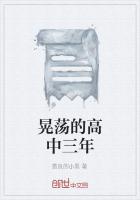In the sixteenth and seventeenth centuries, a heretic, a man or a woman who openly doubted the fundamental principles upon which his Protestant or Catholic religion had been founded, was considered a more terrible menace than a typhoid carrier. Typhoid fever might (very likely would) destroy the body. But heresy, according to them, would positively destroy the immortal soul. It was therefore the duty of all good and logical citizens to warn the police against the enemies of the established order of things and those who failed to do so were as culpable as a modern man who does not telephone to the nearest doctor when he discovers that his fellow-tenants are suffering from cholera or small-pox.
In the years to come you will hear a great deal about preventive medicine. Preventive medicine simply means that our doctors do not wait until their patients are sick, then step forward and cure them. On the contrary, they study the patient and the conditions under which he lives when he (the patient) is perfectly well and they remove every possible cause of illness by cleaning up rubbish, by teaching him what to eat and what to avoid, and by giving him a few ****** ideas of personal hygiene. They go even further than that, and these good doctors enter the schools and teach the children how to use tooth-brushes and how to avoid catching colds.
The sixteenth century which regarded (as I have tried to show you) bodily illness as much less important than sickness which threatened the soul, organised a system of spiritual preventive medicine. As soon as a child was old enough to spell his first words, he was educated in the true (and the "only true") principles of the Faith. Indirectly this proved to be a good thing for the general progress of the people of Europe.
The Protestant lands were soon dotted with schools. They used a great deal of very valuable time to explain the Catechi**, but they gave instruction in other things besides theology.
They encouraged reading and they were responsible for the great prosperity of the printing trade.
But the Catholics did not lag behind. They too devoted much time and thought to education. The Church, in this matter, found an invaluable friend and ally in the newly-founded order of the Society of Jesus. The founder of this remarkable organisation was a Spanish soldier who after a life of unholy adventures had been converted and thereupon felt himself bound to serve the church just as many former sinners, who have been shown the errors of their way by the Salvation Army, devote the remaining years of their lives to the task of aiding and consoling those who are less fortunate.
The name of this Spaniard was Ignatius de Loyola. He was born in the year before the discovery of America. He had been wounded and lamed for life and while he was in the hospital he had seen a vision of the Holy Virgin and her Son, who bade him give up the wickedness of his former life. He decided to go to the Holy Land and finish the task of the Crusades.
But a visit to Jerusalem had shown him the impossibility of the task and he returned west to help in the warfare upon the heresies of the Lutherans.
In the year 1534 he was studying in Paris at the Sorbonne.
Together with seven other students he founded a fraternity.
The eight men promised each other that they would lead holy lives, that they would not strive after riches but after righteousness, and would devote themselves, body and soul, to the service of the Church. A few years later this small fraternity had grown into a regular organisation and was recognised by Pope Paul III as the Society of Jesus.
Loyola had been a military man. He believed in discipline, and absolute obedience to the orders of the superior dignitaries became one of the main causes for the enormous success of the Jesuits. They specialised in education. They gave their teachers a most thorough-going education before they allowed them to talk to a single pupil. They lived with their students and they entered into their games. They watched them with tender care. And as a result they raised a new generation of faithful Catholics who took their religious duties as seriously as the people of the early Middle Ages.
The shrewd Jesuits, however, did not waste all their efforts upon the education of the poor. They entered the palaces of the mighty and became the private tutors of future emperors and kings. And what this meant you will see for yourself when I tell you about the Thirty Years War. But before this terrible and final outbreak of religious fanaticism, a great many other things had happened.
Charles V was dead. Germany and Austria had been left to his brother Ferdinand. All his other possessions, Spain and the Netherlands and the Indies and America had gone to his son Philip. Philip was the son of Charles and a Portuguese princess who had been first cousin to her own husband. The children that are born of such a union are apt to be rather queer. The son of Philip, the unfortunate Don Carlos, (murdered afterwards with his own father's consent,) was crazy.
Philip was not quite crazy, but his zeal for the Church bordered closely upon religious insanity. He believed that Heaven had appointed him as one of the saviours of mankind. Therefore, whosoever was obstinate and refused to share his Majesty's views, proclaimed himself an enemy of the human race and must be exterminated lest his example corrupt the souls of his pious neighbours.















